Relationship red lines tend to be pretty subjective, some folks labor along in horrible, toxic situations, while others dump folks left and right. There are perhaps no right answers, because it is the sort of thing everyone needs to discuss with their partner. But therein lies the trap, sometimes people prefer to avoid discussing anything with their loved ones, to everyone’s detriment.
A netizen asked the internet if they were wrong for both dumping and kicking out their girlfriend after she announced, without warning, that she was about to embark on a solo backpacking trip. We reached out to the person who made the post via private message and will update the article when they get back to us.
Most folks don’t like it when their partners keep secrets

Image credits: V1ktoria / Envato (not the actual photo)
But one netizen dumped their GF over an unannounced solo trip to Latin America


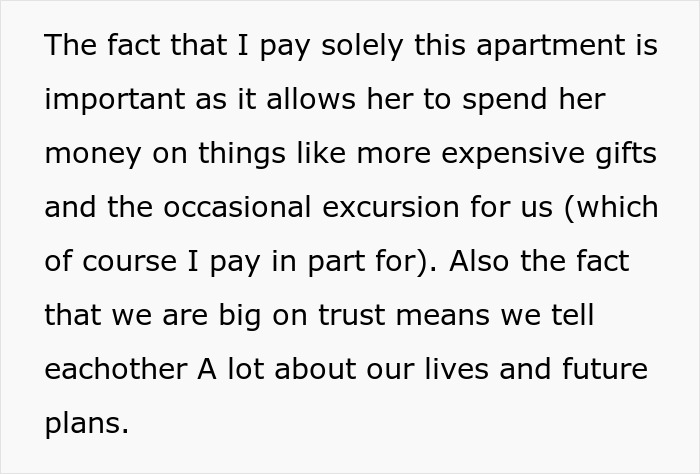





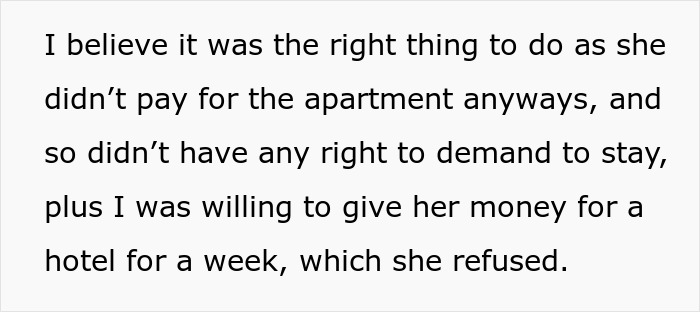

Image credits: varyapigu / Envato (not the actual photo)
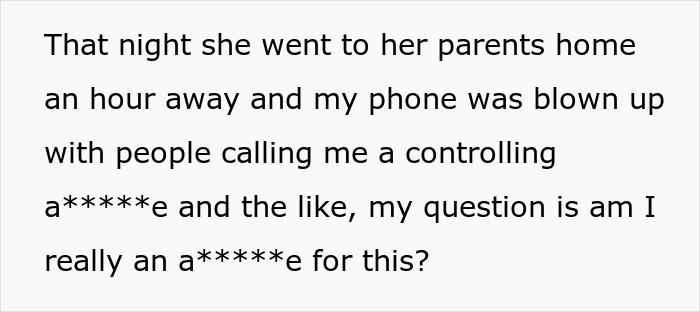

Image credits: ohnsgaythrowaway
Everyone has their own breaking point in a relationship

Image credits: Getty Images / Unsplash (not the actual photo)
Breaking up is always a serious measure, but there are occasions where the “reasons” for such drastic action do not appear sufficient justification for the repercussions that ensue. Reducing a partner to homelessness due to an unannounced solo vacation is a potent illustration of this disparity. At worst, not discussing a personal vacation could be a sign of bad communication or mismatched expectations regarding openness, but it is far from the type of betrayal or risk that typically calls for the most extreme of reactions. Reducing a disagreement over disclosure to taking away shelter enters into an area where the penalty far exceeds the act.
Solo travel can be vastly different based on the individual and circumstances. Some individuals just must have some time by themselves in order to recharge, others want to go after things that their spouse may not enjoy, and most often the exclusion is simply a result of forgetfulness and not something secretive. Even if the silence between them hurts, it does not necessarily mean unfaithfulness or a breakdown in trust. In healthy dynamics, such a time is a time for dialogue, a time to ask why the information wasn’t disclosed, how each views independence, and what both require in terms of future transparency.
For its part, making a partner homeless makes an appeal to expectations into a crisis that has real material consequences. Housing is a basic requirement, and depriving someone of it turns what would otherwise have been a matter of interpersonal conflict into an act of destabilization. It promises not just to display anger but also a readiness to exert power in a way that privileges punishment over care.
Healthier relationships will probably be based on the law of proportion, the belief that a small row should not lead to long-term damage. When someone crosses the line beyond what the situation can reasonably justify, it can uncover a dynamic of retaliation over empathy.
Kicking a person out of a home without warning is toxic

Image credits: A. C. / Unsplash (not the actual photo)
There are disagreements about autonomy and honesty in all relationships. Some individuals desire near-total honesty, while others are more discreet or playful. Such discrepancies are not always destructive, but they must be negotiated continuously. The healthiest most often than not requires compromise, setting more definitive boundaries around when plans are to be revealed, or agreeing that solo time and solo outings are necessary as long as both parties feel valued. These are painful conversations to have, but they’re far preferable to decisions that permanently shatter the relationship.
Breaking up sometimes is the right choice if values and expectations simply can’t be reconciled. But even in that case, coupling immediate homelessness with the decision makes the conclusion unnecessarily merciless. Ending and separating already possess sentimental weight, depriving one individual of safety for a simple vetoed visit crosses into disproportionate measure. A relationship must never be a space where miniature breakdowns of transactions can result in life-altering sentences.
Ultimately, the matter isn’t so much whether a lone trip should have been revealed as it is one of proportionality. Partnerships are formed not merely through honesty, but through vision, the capacity to balance an action against its effect and react in measured terms, not explosive ones. If the response to a small action is proportionally disastrous, it says more about the health of the relationship than the trip.
Some thought it was reasonable to dump her



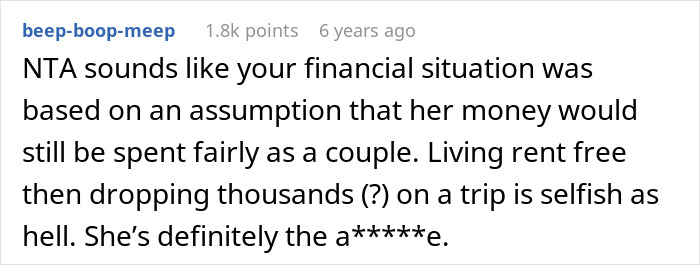









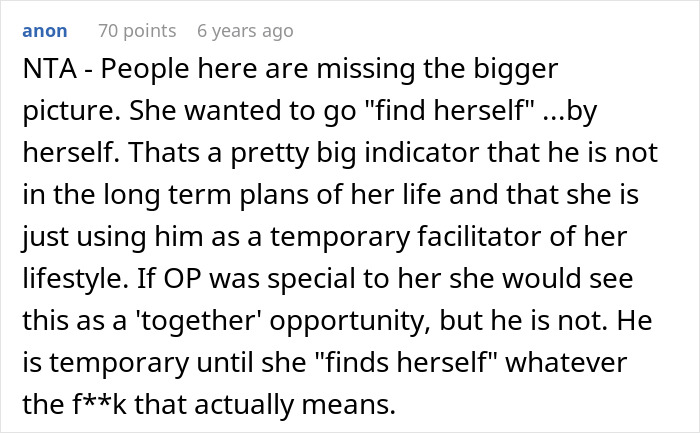
Others thought it was an overreaction to make her homeless
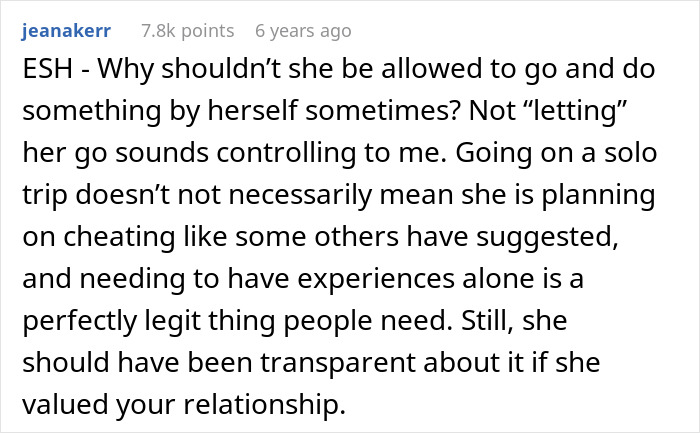
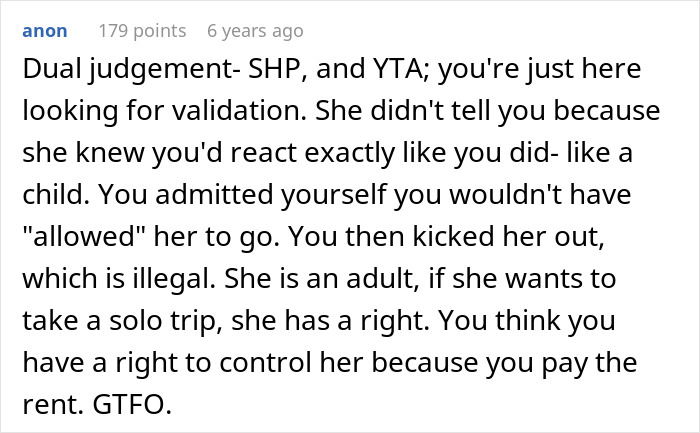
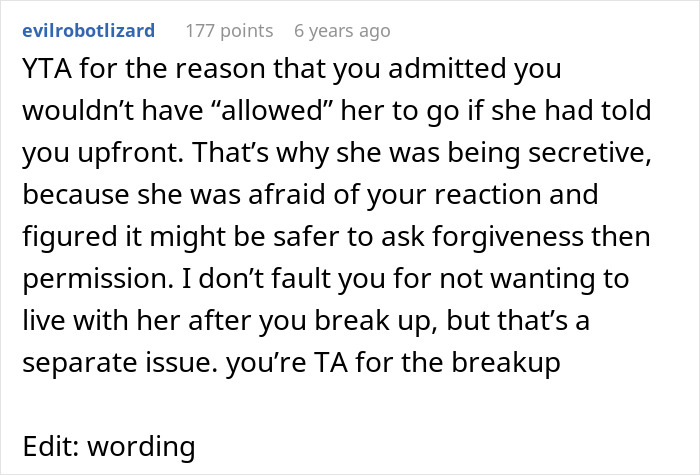

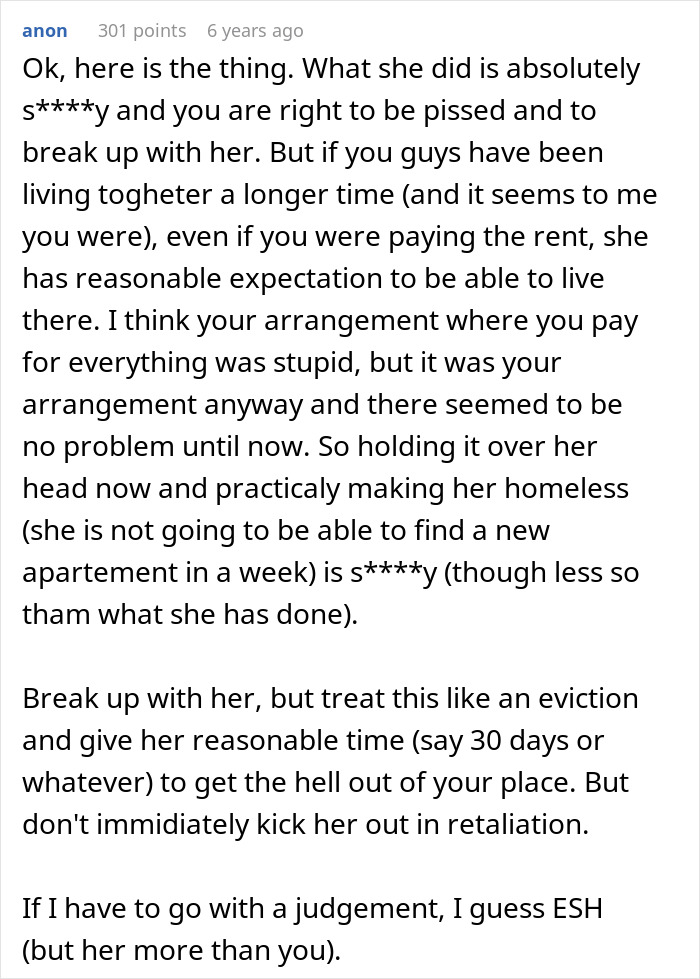
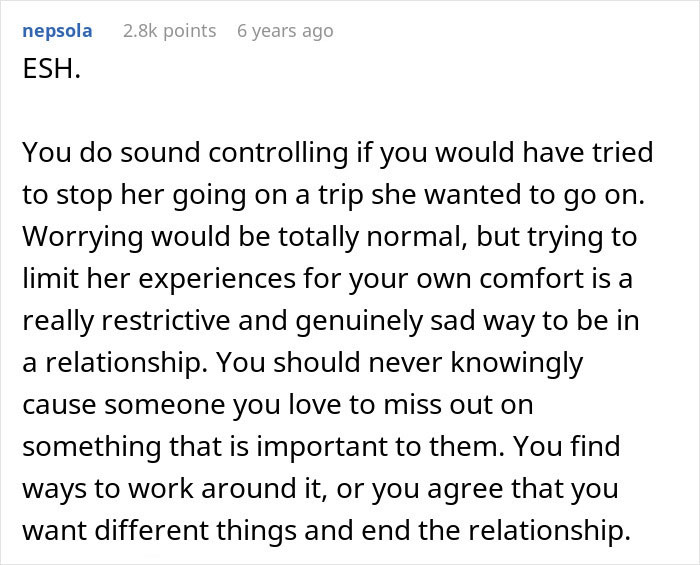
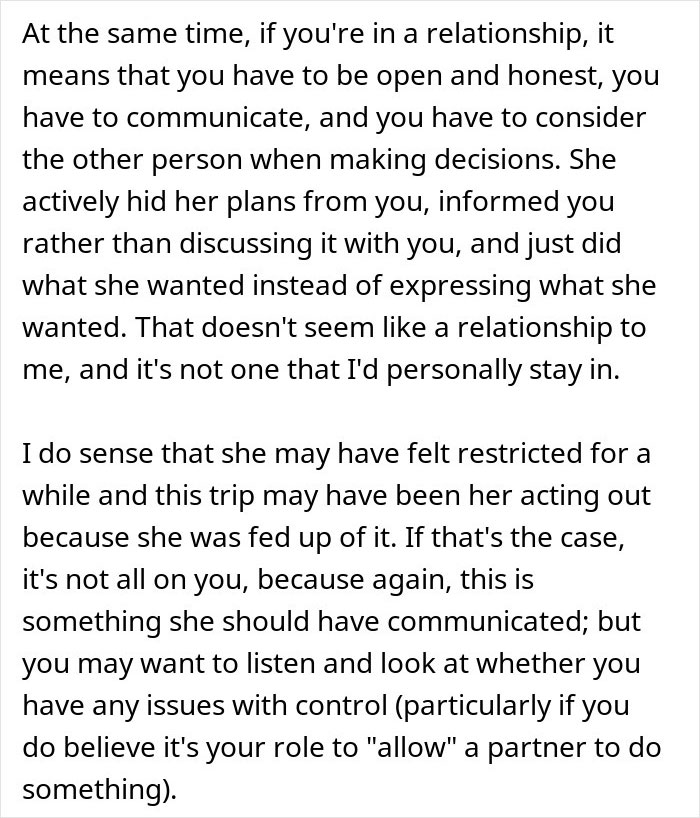



 Follow Us
Follow Us





